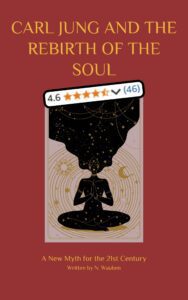Reading philosophical books can be immensely valuable. Philosophical books can change the way you think, give you the ability to observe varying ideas from different perspectives, or they can simply be enjoyable to read. However, reading philosophy is not always enjoyable or informative. The value one gets from reading philosophy largely corresponds to how well one can understand the ideas presented by the philosopher. As such, in order to better understand philosophy and thereby get the most value from reading philosophy, I have made this list of top tips for reading philosophy.
Table of Contents
Begin with Philosophical Fiction (Tip 1)
Books belonging to the genre of philosophical fiction can be defined as a work of fiction with a strong philosophical connotation. Instead of an author simply presenting his or her philosophical ideas throughout the book directly, as is the case with regular philosophy books, within a philosophical fiction book, the author will present philosophical ideas often indirectly.
Frequently this is done by letting different characters within the book having philosophical discussions with each other (The Brothers Karamazov by Fyodor Dostoevksy). However, often a real philosophical discussion is not present, but, instead, a philosophical message can be deducted from the way in which the story develops (1984 by George Orwell or Atlas Shrugged by Ayn Rand).
In case you are interested in philosophy but still find philosophical books to be too complicated or intimidating to read, then philosophical fiction is a great way to start. These books often follow a similar structure as the books one is used to, making them a lot easier to read. However, at the same time, they can still be extremely powerful in presenting philosophical ideas.
Bear in mind, however, that there are also some extremely complicated works of philosophical fiction. It is therefore best to research which books are recommended for this purpose. Personally, I would recommend the following: 1: Fyodor Dostoevsky – Crime and Punishment, 2: Albert Camus – The Stranger, 3: George Orwell – 1984, 4: Aldous Huxley – A Brave New World, 5: Oscar Wilde – The Picture of Dorian Gray.
Start out Easy (Tip 2)
Whether you begin by reading philosophical fiction or regular philosophy books, it is always better to begin by reading relatively easy books. If the book you are reading is too complicated, it will be difficult to understand the ideas presented by the author sufficiently. However, even worse, you will not be able to properly enjoy the book that you are reading, making it harder to stay motivated or learn anything at all.
Previously I have made a list of the top 10 best Philosophy Books for Beginners which you can find here: Article/Youtube Video. Personally, I started by reading Fyodr Dostoevsky’s book Crime and Punishment. The story itself is relatively easy to follow, but most importantly, extremely interesting. As a result, it is a lot more enjoyable and therefore also more motivating.
Read only those Books which you Enjoy (Tip 3)
If you have found a book which is suitable to your level of expertise, it is still important to carefully monitor whether you are truly enjoying the book that you are reading. If this is not the case than it is not a problem to stop reading this specific book, even if a lot of other readers consider it to be a great book.
In case you continue to read, even though you dislike the book, you might harm your motivation. Moreover, if you dislike the book, it will be a lot harder to remember and comprehend the philosophical ideas presented by the author.
Personally, I have often made this mistake and I simply continued to read even though I did not enjoy the book. The result was that I ended up wasting my time anyways since, even after struggling a lot to finish the book, I could not really remember the contents of the book.

Find Help (Tip 4)
While reading a book on philosophy it can be worthwhile to, at any point during your reading, take a break and use the interpretation of others to enrich your own understanding of the ideas presented by the philosopher. For this purpose, there exist an unlimited number of resources for you to consult. This website as well as my Youtube channel are one such example.
However, make sure that you do not take the interpretation of others for granted, not even my interpretations😊. Ideas can be interpreted in many different ways and there is often no right or wrong interpretation. It is even possible that you come up with an entirely new interpretation. If so, then it might be interesting as well to share your interpretation with other readers.
Become an Expert in one Philosopher (Tip 5)
I also believe it is extremely valuable to become an expert in the ideas of one specific philosopher. In this way you will know the ins and outs of the philosophy of one author, making it easier to understand the ideas of different philosophers as well, because you can compare their ideas to the ideas of ‘your’ philosopher.
Moreover, gaining a thorough understanding of the ideas of a specific philosopher, will also provide you with a lot more value. As you know, reading philosophical books can be a difficult challenge. I often believe that this is mainly the case because, throughout the book, the author is having a ‘conversation’ with him or herself. As such, if you learn to understand how a specific philosopher thinks, it is possible to fully grasp the true meaning of the arguments presented in the book. As a result, you will be able to form a clearer interpretation of the ideas of this philosopher, thereby proving you with a lot more value.
Take notes (Tip 6)
I have saved one of the most important tips for reading philosphy for last: try to take notes. This has been a game changer for my personal philosophy journey. Initially I did not take any notes myself and I noticed that I did not remember a lot of the contents of a book after finishing it.
Taking notes will on its own already help you memorize what you are reading. However, it also gives you the opportunity to quickly revisit the ideas from a book without having to read the entire book again.
You can find your own system for this and there is no right or wrong system. Personally, I like to underline the sentences which I find interesting and place a small sticky note on every page where I have underlined something. In the end I use my website and Youtube channel to present my own interpretations of the ideas which I have read, making me remember the ideas even better. Naturally you do not have to make your interpretations public, however, I have found this to be a way to stay motivated and engage in interesting discussions with other readers.
Conclusions
Thank you for reading through my top tips for reading philosophy. I really hope that they will offer you some value. Personally, these tips have helped me significantly and I now feel comfortable reading some of the most complicated philosophical texts. If you have some other usual tips for reading philosophy, please let me know below in the comments.

